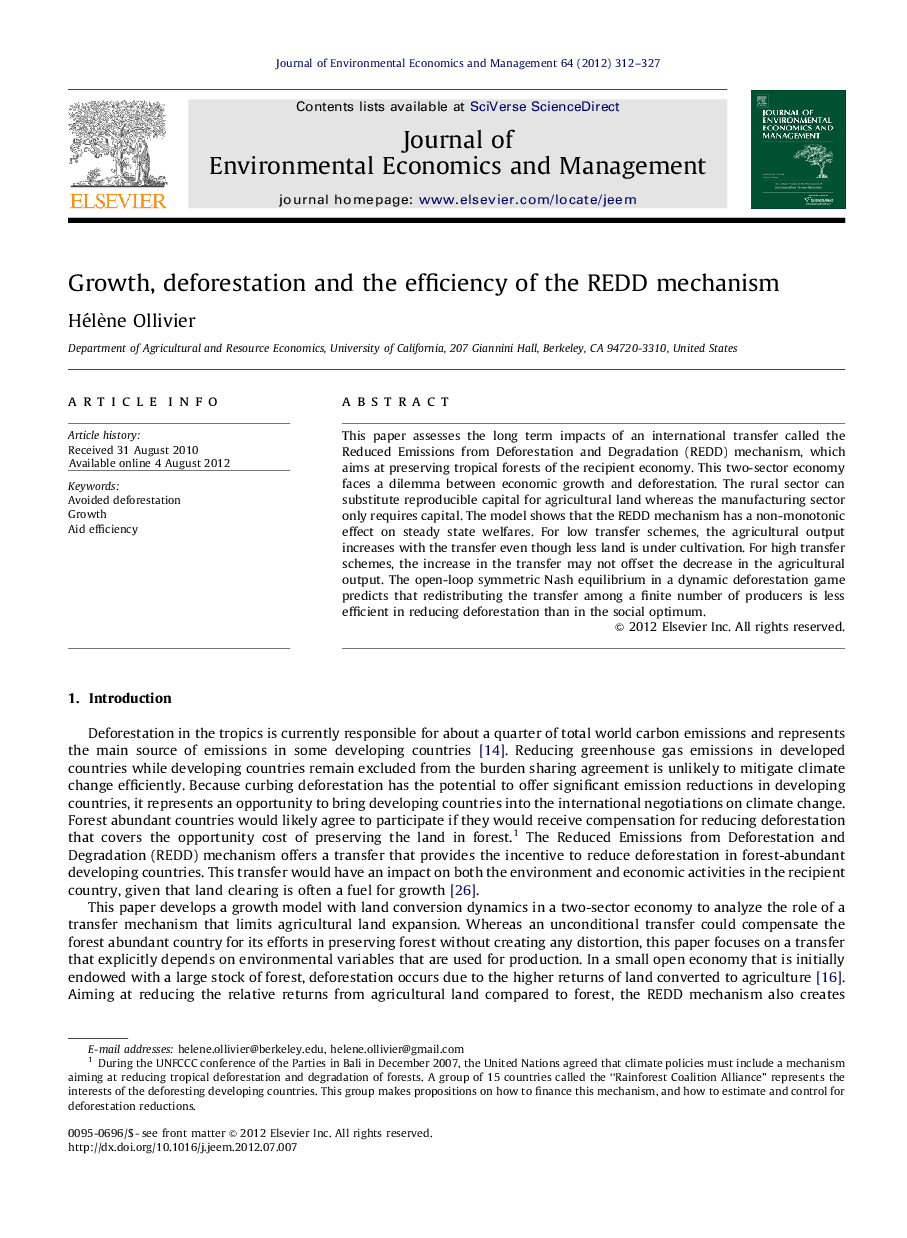| Article ID | Journal | Published Year | Pages | File Type |
|---|---|---|---|---|
| 958961 | Journal of Environmental Economics and Management | 2012 | 16 Pages |
This paper assesses the long term impacts of an international transfer called the Reduced Emissions from Deforestation and Degradation (REDD) mechanism, which aims at preserving tropical forests of the recipient economy. This two-sector economy faces a dilemma between economic growth and deforestation. The rural sector can substitute reproducible capital for agricultural land whereas the manufacturing sector only requires capital. The model shows that the REDD mechanism has a non-monotonic effect on steady state welfares. For low transfer schemes, the agricultural output increases with the transfer even though less land is under cultivation. For high transfer schemes, the increase in the transfer may not offset the decrease in the agricultural output. The open-loop symmetric Nash equilibrium in a dynamic deforestation game predicts that redistributing the transfer among a finite number of producers is less efficient in reducing deforestation than in the social optimum.
